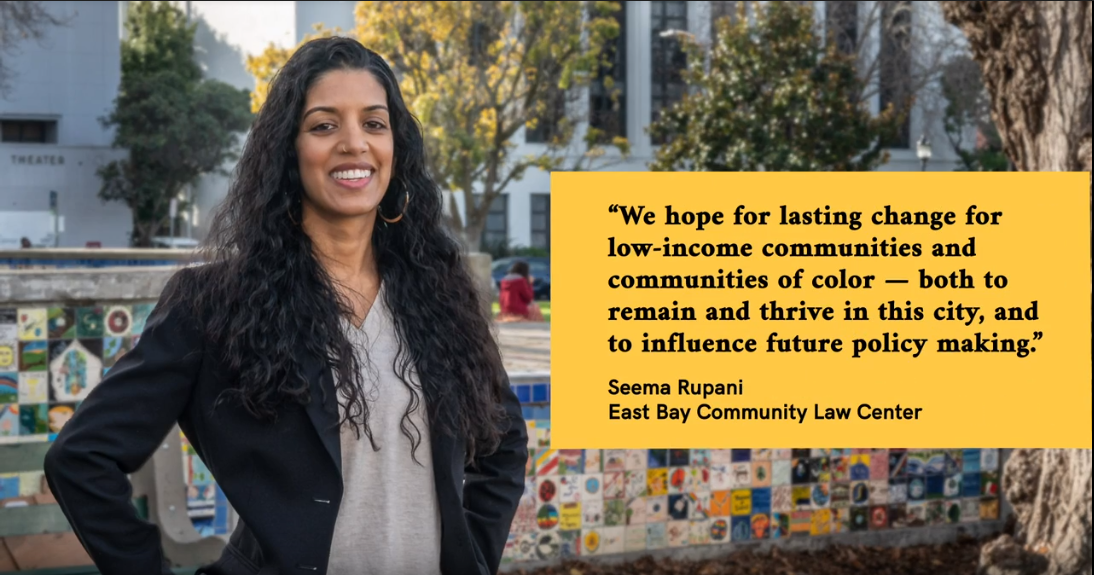Dear Friend,
I wish you could have joined us last Tuesday at the Redwood City Women’s Club. EBCLC gathered with community organizers, researchers, mayors, and funders from across the Bay Area to announce a big step toward housing justice in our cities.
We’re proud to share that EBCLC was selected as one of seven community organizations across the Bay to receive funding to work with our local jurisdiction in creating and implementing equitable, innovative housing policy. We’ll channel this investment to build on our five years of legal and policy research, regional coalition-building, and partnerships with community organizations and with the City of Berkeley that’s helped us shape a Tenant Opportunity to Purchase Act.

Tuesday helped to affirm for us that there’s real momentum to change our laws and move forward with policy change that puts basic human rights over profit. The announcement of this “Challenge Grant” marks an important milestone for our affordable housing preservation work. But the truth is, EBCLC has been working with the community to identify solutions to this housing crisis for decades. Because we’re ready with a policy that’s designed to meet the needs of Berkeley families at risk of displacement, we’re poised to seize this opportunity and bring housing justice to Berkeley, now .
So, what is TOPA, and why do we need it? Simply put, TOPA empowers tenants to determine the future of their housing when their landlord is ready to sell, by giving tenants the opportunity to pool their power and be the first to purchase their buildings. TOPA does this by creating legal rights to purchase or assign rights to an affordable housing developer, extending the timelines for purchase, and providing technical assistance, education, and financing to help make these purchases possible.
The time is ripe for a policy like this, as Bay Area families of color are rapidly facing displacement due to gentrification. Reporting from Urban Displacement Project shows that the City of Berkeley lost hundreds of low-income Black families between 2000 and 2015, and that our neighborhoods are quickly becoming less diverse. When implemented, TOPA will stabilize communities by preserving affordable housing and creating pathways to homeownership for families who have been excluded from the Bay Area’s rising prosperity over the last two decades.
The process of developing a meaningful TOPA policy has affirmed for us the crucial need for movement lawyers- for advocates who take on the goals defined by impacted communities and use the law as one tool for advancing change. Property law and transactional lawyering aren’t usually the realm of social justice advocates- traditionally, these skills have been used in the service of capitalism, to enforce laws that protect white wealth and maintain economic inequity. That’s why it’s so important to leverage legal strategies to develop approaches to the housing crisis that are rooted in principles of justice and democratic community control. TOPA will help us to meet the challenge of the housing crisis head-on- and shift power to the hands of tenants who live here.
Onward,

|
|